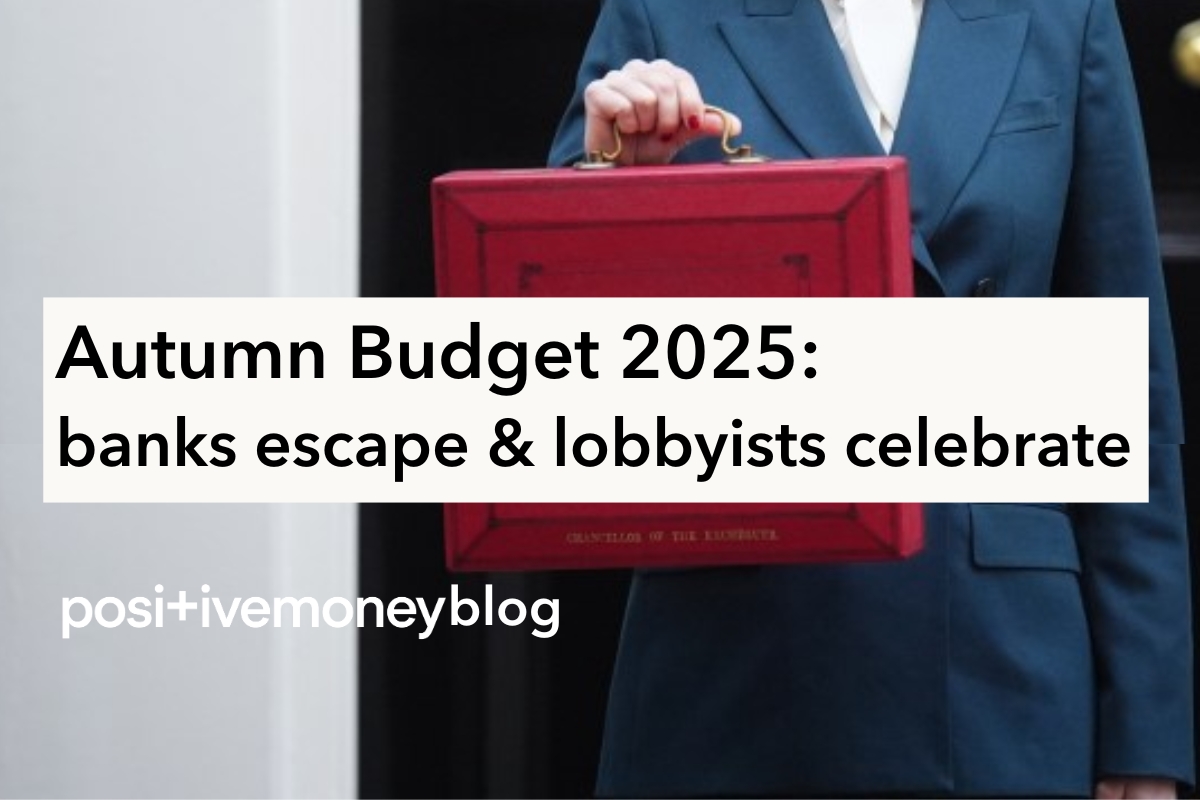
Finance and DemocracyUK
26 November 2025
The way we manage our economy is broken. Both monetary policy (interest rates and money creation) and fiscal policy (taxation and spending) are being used in ways that have made the rich richer and lowered living standards for everyone else.
The current macroeconomic framework relies too much on blunt monetary policy tools wielded by the Bank of England to manage and stabilise the economy. When the economy slows, the Bank of England is relied on to cut interest rates to encourage more borrowing and inject financial markets with new money via quantitative easing (QE) to inflate asset prices, in order to make the owners of assets feel wealthier, in the hope they’ll spend more and that this will trickle down to the rest of the economy
And if the Bank of England thinks the economy is running too ‘hot’, it raises interest rates, with the aim of increasing unemployment so that it’s harder for workers to secure higher wages.
The result is asset price inflation, financial instability and widening inequality. Only 8p in every £1 of QE trickled down into the real economy, and such policies have boosted the wealth of the richest households 116 times more than the poorest.
We need a more dynamic macroeconomic framework to build an economy that can support a just green transition. This means we need our key economic institutions to work together for a more coordinated and targeted approach. Better collaboration on economic policy would expand their toolkit to tackle the most urgent challenges of today, including climate breakdown and growing inequality.
For instance, when the economy needs stimulus, the Bank of England could support the government to spend more on strategic investment. And when we need to deal with inflation, policymakers could draw on a wider range of tools that tackle the sources of inflation, rather than simply raising interest rates across the board.
Recent years have shown just how broken the macroeconomic policy framework is. The Bank of England spent years after 2008 trying to stimulate the economy with lower interest rates and QE, in order to compensate for the government taking money out of the economy with austerity. More recently, inflation has returned, and the Bank, with limited tools, felt forced to suddenly raise rates, piling on misery to millions of households,and businesses while increasing the cost of the investment we urgently need to build a thriving economy and public services.
With the failure of monetary policy to both stimulate the economy and manage inflation, and with the public finances under pressure from central bank policy, a rethink is more timely than ever.
Part of that rethink must also consider how governments are locked into prioritising economic growth rather than things that actually matter to people like good public services, and protecting the environment. We can't address environmental breakdown and protect human wellbeing without a radical rethink. We need to refocus policy making towards broader social and environmental indicators.
We have given evidence to Parliamentary committees, who have cited our thinking in reports on topics such as the Bank of England, monetary policy, and the public finances.
Our campaign for a windfall tax on banks’ unearned profits from higher interest rates received widespread media coverage and was debated in Parliament
We advocate for ending our dependence on GDP growth and shifting to broader social and environmental indicators. The Office for National Statistics (ONS) and the Treasury should develop a wellbeing framework to act as a north star for policy making to deliver greater wellbeing and improve economic and social outcomes for all.
